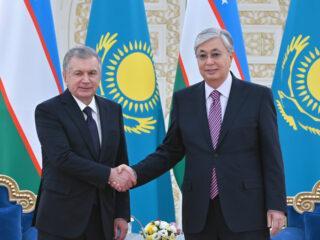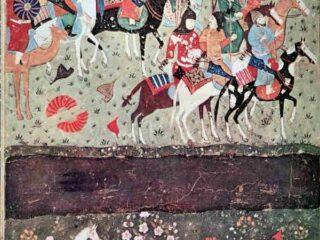Central Asia: A Source of Energy for the 21st Century
Three decades after independence, Central Asia continues its impressive path of economic development. Russia’s invasion of Ukraine sent shockwaves throughout the global energy markets. Today, the EU faces a grim reality of reliance on Russian energy exports, particularly natural gas. In the short term, alternative suppliers of current energy, including gas, coal, and nuclear, must be found to meet Europe’s demand for affordable power and ample baseload.
Viable alternatives capable of quelling energy shortages exist around the world. The former Soviet Central Asian Republics — Kazakhstan, Kyrgyzstan, Turkmenistan, and Uzbekistan — are rich in hydrocarbons, hydro energy, coal, and other natural resources. Its leaders understand the potential of newfound energy opportunities for the 21st century and are willing to play their role in stabilizing global energy markets. The immediate opportunities for Central Asia won’t last forever and underscore the urgency of this analysis.
This report analyzes opportunities for Central Asia to expand its energy-exporting capabilities, fortifying and assuaging a disrupted international energy supply chain that reels from Russian aggression. The report, co-authored by Dr. Ariel Cohen, Wesley A. Hill, and Daniel Tomares, provides four axes of analysis: 1) the potential of Central Asia to meet international energy demand, 2) the infrastructure to realize these initiatives, 3) the geopolitical challenges for the region, and 4) whether proximity and ties to Russia and China pose obstacles to the development of partnerships.
SPEAKERS
Kairat Umarov is a career diplomat for the Republic of Kazakhstan. He is currently serving as the First Deputy Minister of Foreign Affairs of Kazakhstan. Prior to this appointment, he served as the Permanent Representative of Kazakhstan to the United States between January 2017-October 2022. His career spans over two decades during which he has served as Minister-Counselor at Kazakhstan’s Washington, DC embassy (1998-2003), Deputy Minister of Foreign Affairs (2009-2013); Ambassador of Kazakhstan to the United States (2013-2016) and Plenipotentiary Ambassador of Kazakhstan to the Republic of Austria (2020-2022). During his long tenure in Washington, Ambassador Umarov has continued to emphasize cooperation with the U.S. in the areas of economic development and investment. He has met with civil society groups and discussed religious freedom in Kazakhstan and has served on panels in Washington, D.C. on Kazakhstan’s economic and political influence in the region.
Dr. Ariel Cohen, Senior Fellow with the International Tax and Investment Center and Director of the Energy, Growth and Security Program. He also serves as a Non-Resident Senior Fellow at the Atlantic Council’s Eurasia Center. Dr. Cohen is an internationally renowned expert on energy policy, Russia/Eurasia, Eastern and Central Europe, and the Middle East. He is a recognized authority on political and security risk management; economic development, investment policy; the rule of law; crime and corruption; market entry strategies; and other aspects of state/business relations.
Wesley Alexander Hill, Research Analyst and International Program Manager for the Energy, Growth, and Security Program at the International Tax and Investment Center. Wesley is an accomplished foreign policy professional and expert on energy policy, security studies, grand strategy, Chinese politics, Sino-American relations, Sino-African relations, and Sino-Eurasian relations. Wesley serves as a contributor and has been published in Forbes, New Lines, Voice of America, and the Nomura Research Group. Mr. Hill has also been a CLFP fellow at The National Bureau of Asian Research (2019-2020).
Daniel Witt is the President of the International Tax and Investment Center (ITIC), which he helped found in September 1993. Mr. Witt has been working to promote free markets and helping to lower the barriers to tax, trade, and investment in transition economies for over 30 years. Having worked with 85 countries, he has co-developed a unique neutral table to bring together the public sector, private sector, and academics to advance pro-investment economic policy reforms. Prior to assuming the duties as President of ITIC, Mr. Witt was Executive Director of the Tax Foundation, the oldest tax and budget research organization in the United States. Prior to joining the Tax Foundation, Mr. Witt was Vice President and Director of Membership with Citizens for a Sound Economy, a 250,000-member Washington-based public interest group. He also served as a consultant to President Reagan’s Commission on Privatization.
Moderator, Sebastien Peyrouse
Research Professor, Central Asia Program, IERES, George Washington University and a Senior Fellow with the George H. W. Bush Foundation for U.S.-China relations. His main areas of expertise are political systems in Central Asia, economic and social issues, Islam and religious minorities, and Central Asia’s geopolitical positioning toward China, India and South Asia.













